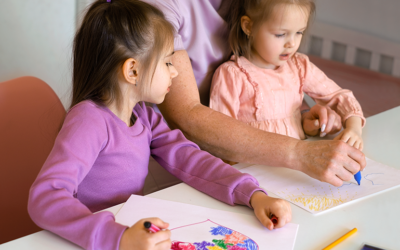Supporting You in Your Time of Grief
Tabitha’s comprehensive bereavement program offers support to spouses and family members during a time of loss.
Tabitha Hospice offers bereavement services for 18 months following the loss of your loved one.
- Individual grief support
- Grief support groups
- Educational grief events
- Phone call check-ins/support
- Remembrance services
- Mailings, including grief support, Embrace newsletter, resources and more
Tabitha Hospice Bereavement Coordinators
Our Bereavement Coordinators provide grief support following the death of your loved one.

Juanita Steenbakkers
Serving the Nebraska City Area
402.416.7365

Jason Padilla
Serving the Lincoln/Lancaster Area
402.366.6791

Dan Rogers
Serving the Grand Island, Kearney & York Areas
402.366.6791
Grief Support Groups & Remembrance Services
Tabitha is proud to offer Grief Support Groups throughout the year as a service to family members and friends experiencing the recent death of a loved one. The meetings promote healthy conversation between a Tabitha team member specifically trained in grief support and a small group of individuals going through a common experience.
The purpose of Tabitha’s grief support groups is to equip participants with the tools and resources needed to reinvest in life.
Grief Tip Videos
Tabitha’s Bereavement Coordinators bring you words of advice, grief education, support and more in these grief tip videos
created just for Tabitha Hospice.
Grief Note
“Today is mostly sunny!” That’s what I told myself this morning when I saw the clouds in the sky. Between them, the sun was peeking through. I chose not to focus on the clouds, but the blue sky and bright sunshine instead.
One might call this “positive thinking” or “blissful ignorance,” but most people do it without realizing.
Similarly, how you view grief is a choice you make. Louis LaGrand puts it this way in his book, “Healing Grief, Finding Peace” — “Will you be loss oriented in the months and years ahead, or will you be restoration oriented?”
In other words, will you see the sunny possibilities for rebuilding life and growing through loss? Or will your loss cloud your chances of moving forward?
At times, the sadness that you feel in grief might make it seem impossible to continue on.
The truth is that time is moving forward regardless. The bigger question is: how will you?
The Book of Lamentations tells us how God’s people face loss. In Chapter 3, Verse 21: “But this I call to mind, and therefore I have hope.”
The act of “calling to mind” is an intentional and ongoing effort to reorient your thinking, despite perhaps feeling burdened, sorrowful, lonely, tired or all of the above. It will help you remember what gives you hope, even while you are deeply experiencing grief.
So what gives YOU hope? What makes your day sunnier? How can you begin to be more restoration oriented in your everyday life? If you aren’t sure where to start, a good starting point for you may be Lamentations 3:22-24.
As always, Tabitha’s Bereavement Coordinators are here to help along your grief journey.
Grief Book and Podcast Suggestions
Sometimes finding the right book, website or podcast can help you process thoughts, feelings and provide helpful insight or information. Check out suggestions by types of loss.







